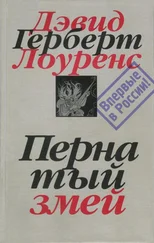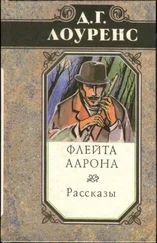Дэвид Лоуренс - Sons and Lovers
Здесь есть возможность читать онлайн «Дэвид Лоуренс - Sons and Lovers» весь текст электронной книги совершенно бесплатно (целиком полную версию без сокращений). В некоторых случаях можно слушать аудио, скачать через торрент в формате fb2 и присутствует краткое содержание. Жанр: Старинная литература, на английском языке. Описание произведения, (предисловие) а так же отзывы посетителей доступны на портале библиотеки ЛибКат.
- Название:Sons and Lovers
- Автор:
- Жанр:
- Год:неизвестен
- ISBN:нет данных
- Рейтинг книги:3 / 5. Голосов: 1
-
Избранное:Добавить в избранное
- Отзывы:
-
Ваша оценка:
- 60
- 1
- 2
- 3
- 4
- 5
Sons and Lovers: краткое содержание, описание и аннотация
Предлагаем к чтению аннотацию, описание, краткое содержание или предисловие (зависит от того, что написал сам автор книги «Sons and Lovers»). Если вы не нашли необходимую информацию о книге — напишите в комментариях, мы постараемся отыскать её.
Sons and Lovers — читать онлайн бесплатно полную книгу (весь текст) целиком
Ниже представлен текст книги, разбитый по страницам. Система сохранения места последней прочитанной страницы, позволяет с удобством читать онлайн бесплатно книгу «Sons and Lovers», без необходимости каждый раз заново искать на чём Вы остановились. Поставьте закладку, и сможете в любой момент перейти на страницу, на которой закончили чтение.
Интервал:
Закладка:
“Well, mother?”
“Well, my son?”
She sat in the rocking-chair, feeling somehow hurt and humiliated, for his sake.
“Do you like her?”
“Yes,” came the slow answer.
“She’s shy yet, mother. She’s not used to it. It’s different from her aunt’s house, you know.”
“Of course it is, my boy; and she must find it difficult.”
“She does.” Then he frowned swiftly. “If only she wouldn’t put on her blessed airs!”
“It’s only her first awkwardness, my boy. She’ll be all right.”
“That’s it, mother,” he replied gratefully. But his brow was gloomy. “You know, she’s not like you, mother. She’s not serious, and she can’t think.”
“She’s young, my boy.”
“Yes; and she’s had no sort of show. Her mother died when she was a child. Since then she’s lived with her aunt, whom she can’t bear. And her father was a rake. She’s had no love.”
“No! Well, you must make up to her.”
“And so—you have to forgive her a lot of things.”
“ What do you have to forgive her, my boy?”
“I dunno. When she seems shallow, you have to remember she’s never had anybody to bring her deeper side out. And she’s fearfully fond of me.”
“Anybody can see that.”
“But you know, mother—she’s—she’s different from us. Those sort of people, like those she lives amongst, they don’t seem to have the same principles.”
“You mustn’t judge too hastily,” said Mrs. Morel.
But he seemed uneasy within himself.
In the morning, however, he was up singing and larking round the house.
“Hello!” he called, sitting on the stairs. “Are you getting up?”
“Yes,” her voice called faintly.
“Merry Christmas!” he shouted to her.
Her laugh, pretty and tinkling, was heard in the bedroom. She did not come down in half an hour.
“Was she really getting up when she said she was?” he asked of Annie.
“Yes, she was,” replied Annie.
He waited a while, then went to the stairs again.
“Happy New Year,” he called.
“Thank you, Chubby dear!” came the laughing voice, far away.
“Buck up!” he implored.
It was nearly an hour, and still he was waiting for her. Morel, who always rose before six, looked at the clock.
“Well, it’s a winder!” he exclaimed.
The family had breakfasted, all but William. He went to the foot of the stairs.
“Shall I have to send you an Easter egg up there?” he called, rather crossly. She only laughed. The family expected, after that time of preparation, something like magic. At last she came, looking very nice in a blouse and skirt.
“Have you really been all this time getting ready?” he asked.
“Chubby dear! That question is not permitted, is it, Mrs. Morel?” She played the grand lady at first. When she went with William to chapel, he in his frock-coat and silk hat, she in her furs and London-made costume, Paul and Arthur and Annie expected everybody to bow to the ground in admiration. And Morel, standing in his Sunday suit at the end of the road, watching the gallant pair go, felt he was the father of princes and princesses.
And yet she was not so grand. For a year now she had been a sort of secretary or clerk in a London office. But while she was with the Morels she queened it. She sat and let Annie or Paul wait on her as if they were her servants. She treated Mrs. Morel with a certain glibness and Morel with patronage. But after a day or so she began to change her tune.
William always wanted Paul or Annie to go along with them on their walks. It was so much more interesting. And Paul really did admire “Gipsy” whole-heartedly; in fact, his mother scarcely forgave the boy for the adulation with which he treated the girl.
On the second day, when Lily said: “Oh, Annie, do you know where I left my muff?” William replied:
“You know it is in your bedroom. Why do you ask Annie?”
And Lily went upstairs with a cross, shut mouth. But it angered the young man that she made a servant of his sister.
On the third evening William and Lily were sitting together in the parlour by the fire in the dark. At a quarter to eleven Mrs. Morel was heard raking the fire. William came out to the kitchen, followed by his beloved.
“Is it as late as that, mother?” he said. She had been sitting alone.
“It is not late , my boy, but it is as late as I usually sit up.”
“Won’t you go to bed, then?” he asked.
“And leave you two? No, my boy, I don’t believe in it.”
“Can’t you trust us, mother?”
“Whether I can or not, I won’t do it. You can stay till eleven if you like, and I can read.”
“Go to bed, Gyp,” he said to his girl. “We won’t keep mater waiting.”
“Annie has left the candle burning, Lily,” said Mrs. Morel; “I think you will see.”
“Yes, thank you. Good-night, Mrs. Morel.”
William kissed his sweetheart at the foot of the stairs, and she went. He returned to the kitchen.
“Can’t you trust us, mother?” he repeated, rather offended.
“My boy, I tell you I don’t believe in leaving two young things like you alone downstairs when everyone else is in bed.”
And he was forced to take this answer. He kissed his mother good-night.
At Easter he came over alone. And then he discussed his sweetheart endlessly with his mother.
“You know, mother, when I’m away from her I don’t care for her a bit. I shouldn’t care if I never saw her again. But, then, when I’m with her in the evenings I am awfully fond of her.”
“It’s a queer sort of love to marry on,” said Mrs. Morel, “if she holds you no more than that!”
“It is funny!” he exclaimed. It worried and perplexed him. “But yet—there’s so much between us now I couldn’t give her up.”
“You know best,” said Mrs. Morel. “But if it is as you say, I wouldn’t call it love —at any rate, it doesn’t look much like it.”
“Oh, I don’t know, mother. She’s an orphan, and—”
They never came to any sort of conclusion. He seemed puzzled and rather fretted. She was rather reserved. All his strength and money went in keeping this girl. He could scarcely afford to take his mother to Nottingham when he came over.
Paul’s wages had been raised at Christmas to ten shillings, to his great joy. He was quite happy at Jordan’s, but his health suffered from the long hours and the confinement. His mother, to whom he became more and more significant, thought how to help.
His half-day holiday was on Monday afternoon. On a Monday morning in May, as the two sat alone at breakfast, she said:
“I think it will be a fine day.”
He looked up in surprise. This meant something.
“You know Mr. Leivers has gone to live on a new farm. Well, he asked me last week if I wouldn’t go and see Mrs. Leivers, and I promised to bring you on Monday if it’s fine. Shall we go?”
“I say, little woman, how lovely!” he cried. “And we’ll go this afternoon ?”
Paul hurried off to the station jubilant. Down Derby Road was a cherry-tree that glistened. The old brick wall by the Statutes ground burned scarlet, spring was a very flame of green. And the steep swoop of highroad lay, in its cool morning dust, splendid with patterns of sunshine and shadow, perfectly still. The trees sloped their great green shoulders proudly; and inside the warehouse all the morning, the boy had a vision of spring outside.
When he came home at dinner-time his mother was rather excited.
“Are we going?” he asked.
“When I’m ready,” she replied.
Presently he got up.
“Go and get dressed while I wash up,” he said.
Читать дальшеИнтервал:
Закладка:
Похожие книги на «Sons and Lovers»
Представляем Вашему вниманию похожие книги на «Sons and Lovers» списком для выбора. Мы отобрали схожую по названию и смыслу литературу в надежде предоставить читателям больше вариантов отыскать новые, интересные, ещё непрочитанные произведения.
Обсуждение, отзывы о книге «Sons and Lovers» и просто собственные мнения читателей. Оставьте ваши комментарии, напишите, что Вы думаете о произведении, его смысле или главных героях. Укажите что конкретно понравилось, а что нет, и почему Вы так считаете.









